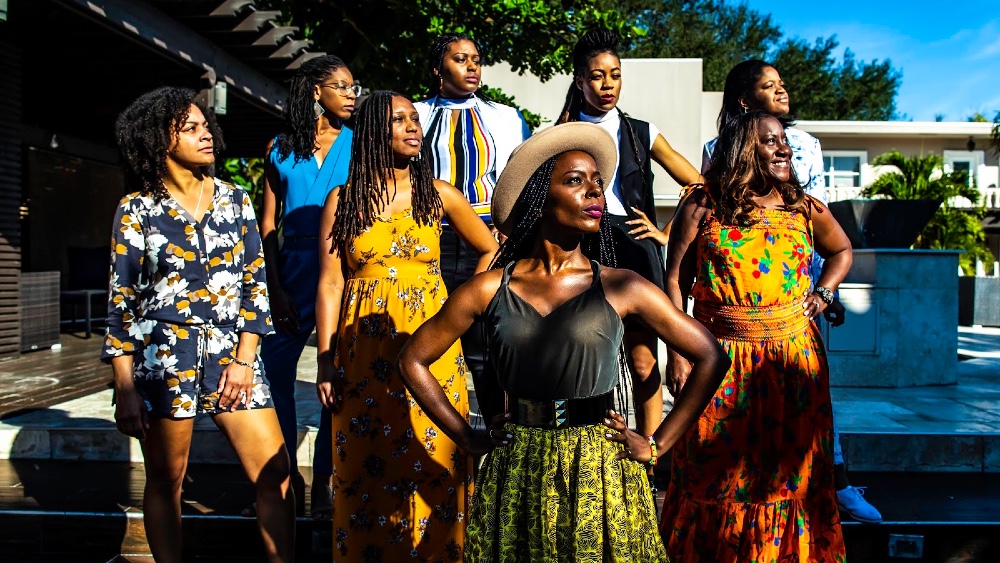If you’re interested in sharing your opinion on any cultural, political or personal topic, create an account here and check out our how-to post to learn more.
____
In 2019, the following headlines blasted mainstream media:
"Guggenheim Hires First Full-Time Black Curator"
"Woman Turns Home Into Museum After Getting Sick Of Black Women Being Ignored By The Art World"
The list goes on of individuals, institutions and artists changing the landscape to increase visibility and equity in the art industry.
After the release of a report from the National Museum of Women in the Arts and in a section on their website titled, “Get the Facts,” it was evident that Black women artists and professionals, and women of color, were left out of the equation.
In an article by Amy and Mara Kurlandsky for Hypoallergenic, they stated, “Our research uncovered something surprising: we had a lot of data about women in the arts, and a good amount of data about race and ethnicity in the arts, and plenty of articles stating that women of color fare worse in the art world, but not much hard data.”
A history of erasure has prevailed even in “women-centric” organizations. Historically, Black women artists have shaped communities and movements, and inspired global change. From Meta Warrick Fuller and Alice Dunbar protesting the lynching of Mary Turner in 1919, Pat Parker and Audre Lorde writing revolutionary poems in Harlem, to Nina Simone and Lorraine Hansberry's relationship influencing the Black Power Movement, Black women artists have been at the pinnacle of any critical moment in our history.
As a response to the dismal fact that only 4% of art across museums and galleries are from Black women artists, TILA Studios created the #AboveFour campaign. Its goal is to increase awareness and interest around Black Women’s participation and contributions in the Fine Art Industry by elevating Black women artists' stories, gathering community and hosting conversations during Miami Art Week.
One experience, The Day After the Revolution Dinner, gathered 50 curators, patrons, collectors and artists gathered for a five-course family style meal positioned as an open source opportunity to nourish ourselves and each other. The dinner, a project the BLCK family has been producing for over four years, is a performative homage to the most universal communal experience.
The #AboveFour Campaign is attached to our Garden Fellowship initiative that supports and funds five Georgia-based artists with an opportunity to exhibit in Miami. The fellowship is a one-year professional development program for emerging Black women artists. The 2019–2020 Garden Fellows selected by the Advisory Council are: Adana Tillman, textile and fabrication, Chloe Alexander, printmaking; Marryam Moma, mixed-media collage artists; Ellex Swavoni, sculpture and toy-making; and Stephanie Brown, photography.
The 2019 Garden Fellows combined generated over $20,000 in art work sales at the Prizm Art Fair.
TILA's one job is to get Black women artists paid for their creativity, seen for their outstanding work and craftsmanship, as well as admired for their tact, grace and excellence. When TILA "Basels," its Black girl magic is amplified. TILA host immersive experiences so that Black creatives can gather, connect and build momentum to show that we have been here and are here to stay.
The TILA House is unlike any other experience offered in Miami for emerging artists. The house serves as a place of comfort, dialogue, rest and nourishment.
In 2020, TILA Studios plans to scale its programs to reach and serve a broader community of Black women artists. We plan to increase our impact by supporting and pipelining opportunities to artists across the globe. Our #AboveFour campaign is not a local movement — it’s a national movement to increase visibility, representation and create a thriving economy where our ideas are valued, acknowledged and equitably paid for.
In the words of Alice Walker from In Search of Our Mothers’ Gardens, “We are a people. A people do not throw their geniuses away. And if they are thrown away, it is our duty as artists and as witnesses for the future to collect them again for the sake of our children, and, if necessary, bone by bone.”
Videos by Dr. Arshley Emile, Timberhouse Films
